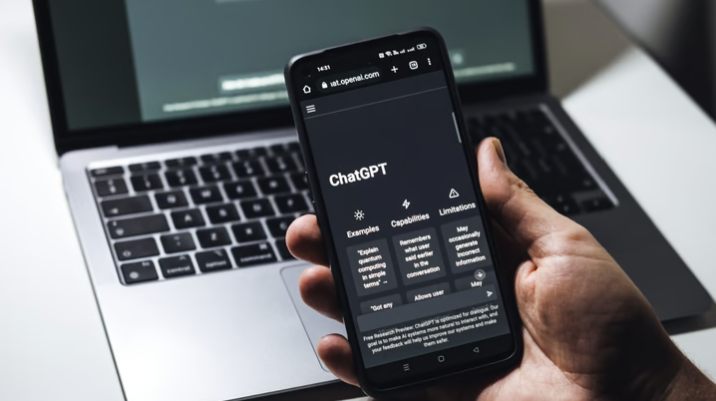Will ChatGPT take my job? Experts reveal the five professions at most risk from the AI revolution
AI chatbot ChatGPT has sparked fears that artificial intelligence could automate millions of jobs out of existence.
Zak Saidi, creative director and AI Lead of creative agency IZSRI, which already uses AI to automate some writing tasks, says that the impact of AI will be felt across many sectors within the next three years.
ChatGPT has hit 100 million users just two months after launch – by comparison, it took TikTok nine months to reach the milestone – and secured a $10 billion investment from Microsoft.
So which jobs are most likely to be replaced by ‘generative AI’? And how soon could it happen?
Copywriters and bloggers
Copywriters, bloggers and people who produce online copy could be among the first to fall in the AI revolution, Saidi believes.
‘ChatGPT is free, copywriters aren’t – we expect more tech-savvy small businesses to turn to ChatGPT and its AI counterparts when generating more content.’
Buzzfeed announced earlier this year that it would use ChatGPT to generate some online content.
Retail staff
Artificial intelligence will lead to ‘serious job losses’ across the retail sector, Saidi believes. Artificial intelligence company Standard AI acquired self-checkout company Skip this year with a goal to create ‘autonomous retail’, to ‘give retailers immediate relief from their labor challenges’, the company said.
Saidi says, ‘In some ways, it can be said that AI works to free workers from the more menial tasks, giving them the time to take on more managerial and creative roles.
Software engineers and cybersecurity experts
As well as producing convincing text in English, ChatGPT can also write computer code in languages such as Python.
Demonstrations shown off by OpenAI show ChatGPT debugging code in response to prompts.
ChatGPT maker OpenAI also makes a different version, Codex, specifically for writing computer code, which Microsoft uses in its GitHub Copilot.
Graphic designers and visual artists
Graphic art tools such as Dall-E, Stable Diffusion and Midjourney could impact the livelihoods of designers, illustrators and visual artists, Saidi says.
Dall-E (also operated by OpenAI) generates 2million images per day, the company announced last year.





















